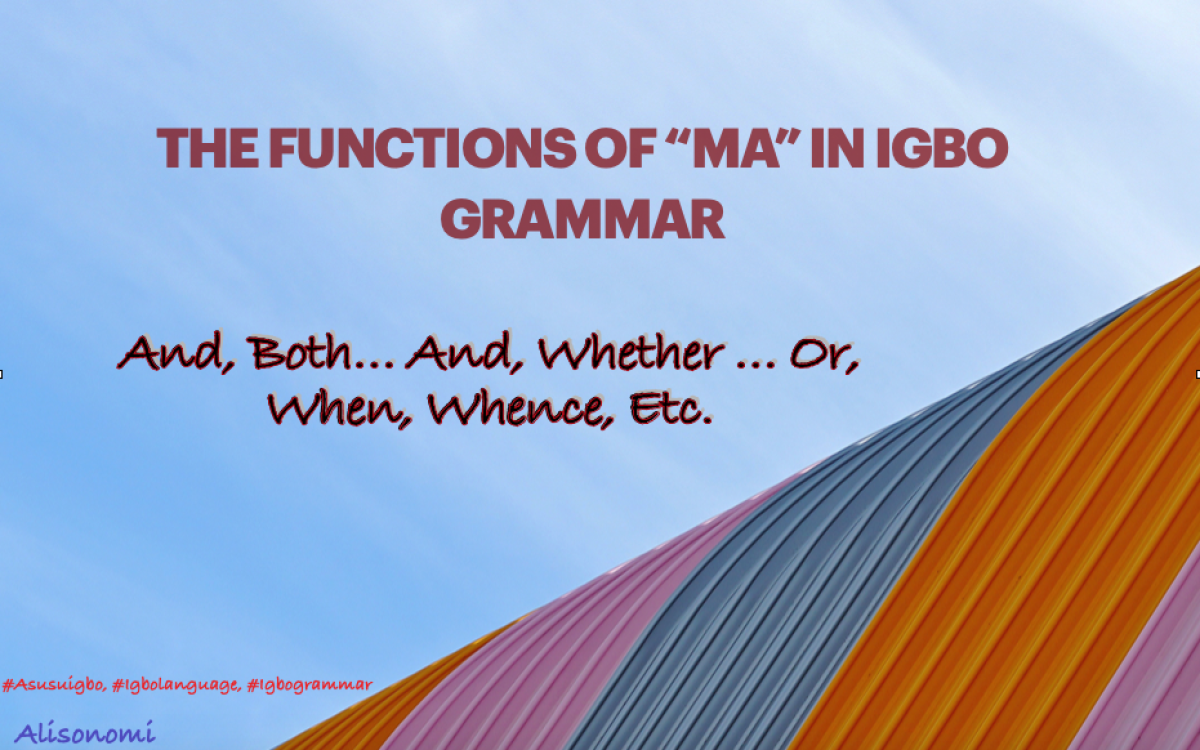Like NA, GA, and KA, “MA” has several functions in Igbo grammar. I have already treated the first three in my past blog posts. Here, Attention will be focused on the roles of “ma”. I will continue the presentation in English to permit those who do not have enough knowledge of the Igbo language to access this course.
However, I’m going to always give examples, first in the Igbo language, then their English translation. Having said that, let’s start by first stating the roles of “MA” in Igbo grammar.
- Verb – Ngwaa
- Conjunction – Njiko
The other five secondary, (and not necessarily minor) functions are also conjunctive in nature, except that “Ma” needs, in each case, auxiliary words to function as a conjunction. It requires the addition of words like “NA”, “KA”, to effectively become a conjunctive word.
In this blog post, we will examine only the two major functions of “MA” in Igbo grammar. The reason is to facilitate its comprehension. There might be a need to stay in tune for the subsequent posts on the functions of MA. In our next blog post (on “MA”), we will concentrate our effort in explaining, with examples, the secondary roles of “MA”. So, do not forget to subscribe.
The Major Functions of MA in Igbo Grammar
- “Ma” plays the role of a verb in Igbo grammar. In this function, MA follows all the rules of Igbo verb grammar in terms of tense, mood, and voices.
Examples:
- A mara ya ụra – S/he was slapped
- Ọ ma(ra) nke bu Eziokwu – S/he knows the truth.
- Anyi matara ebumunuche ya – We discovered his intentions.
- Ụka mabidoro ọrụ tata – Today is a holiday of obligation.
- I matara onye kwụrụ ihe a? – Do you know who said this?
2. “Ma” plays the role of conjunction. It could be a coordinative, subordinative or correlative conjunction. In this role, MA could be translated to “both…and”, “whether… or”, but, when, etc. They can link:
- Words to words
- Phrases to phrases, and
- Clauses to clauses.
Example
- Ha kpọrọ oke ma ọkụkọ – They called (everybody) both rats and chickens.
- Ma ndi ụkwụ ma ndi nta biara ebe a—Both the old and the young cane here.
- Achọrọ m ima ma o kwuru eziokwu — I want to know whether he told the truth.
- Ha ga-abia ma oge ruo – They will come when it is time or when the time comes.
- Unu kpọrọ ya ma ọbiaghi — You called him, but he didn’t come.






